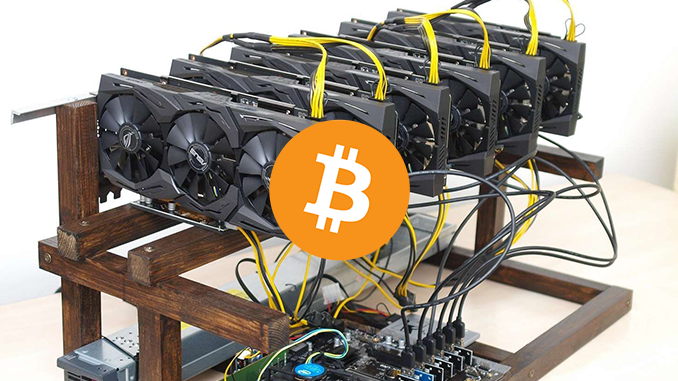
Bitcoin mining is the process by which new BTC are mined as a reward for confirming transactions in the blockchain. We explain methods and details.
Bitcoin mining plays a central role in the discussion about Bitcoin (BTC) energy consumption. China has started to ban Bitcoin mining and elsewhere in the world there are calls to look more closely. But what actually happens when BTC is mined during Bitcoin mining?
In Bitcoin’s blockchain, transactions are validated and unlocked by miners. To create a new block, they each have to solve a complex cryptographic puzzle. In the early days of Bitcoin, competition and difficulty here were still low, and there were chances to become first in generating a new block with an off-the-shelf PC. This has changed drastically, Bitcoin mining can only be profitable for specialized network participants who can get electricity cheaply. This is proven by model calculations.
Because in Bitcoin mining, only the one who is the first to solve the puzzle in the form of a block hash always wins the block rewards. This requires a calculation that is solved by trial and error. Bitcoin miners are thus in constant competition and massive power-hungry computer capacity is called up, which ultimately goes to waste. For a new block, since last May’s Bitcoin halving, there is 6.25 BTC as a reward plus the transaction fees of the transfers contained in the block. In May 2021, Bitcoin miners can thus expect to receive the equivalent of up to $300,000 per new block for themselves.
Bitcoin mining – how to get involved
As explained, individual Bitcoin mining from home is pretty hopeless with your own hardware and alone. At times, cloud mining was in vogue, but here many providers did not distribute the promised Block Rewards. Bitcoin cloud mining is therefore now considered dubious and we strongly advise against it. The situation is somewhat different with mining pools, where hardware is connected together. Binance, for example, offers such mining pools. Here you can expect to be rewarded according to the computer capacity you have contributed. But this model does not change the fact that with German electricity costs of about 30 cents per kWh plus acquisition costs for ASIC computers, Bitcoin mining from locations in Germany is only profitable if you are lucky.
Conclusion: Understanding Bitcoin mining is helpful
The technological foundation of BTC is the blockchain with Bitcoin mining as the incentive for providing computing capacity. But it turns out that Bitcoin mining only makes economic sense where cheap electricity is available. So it is still useful and recommended for you as an investor to understand the basics of Bitcoin mining – but normally you should leave the process to specialized Bitcoin miners. Running a Bitcoin node privately, on the other hand, still makes sense, and not just because of an interest in technology.
Best place to buy Bitcoin:

Leave a Reply